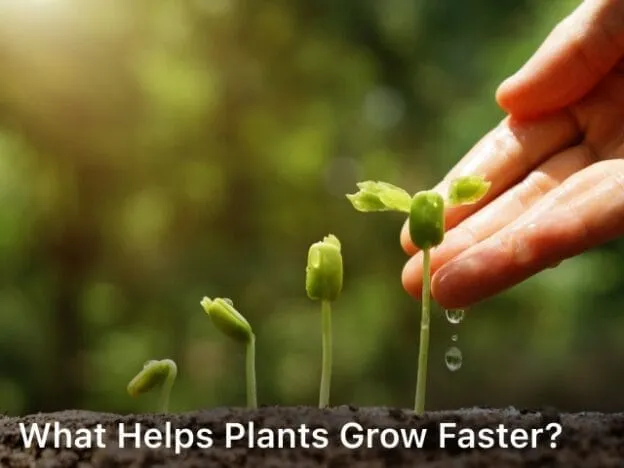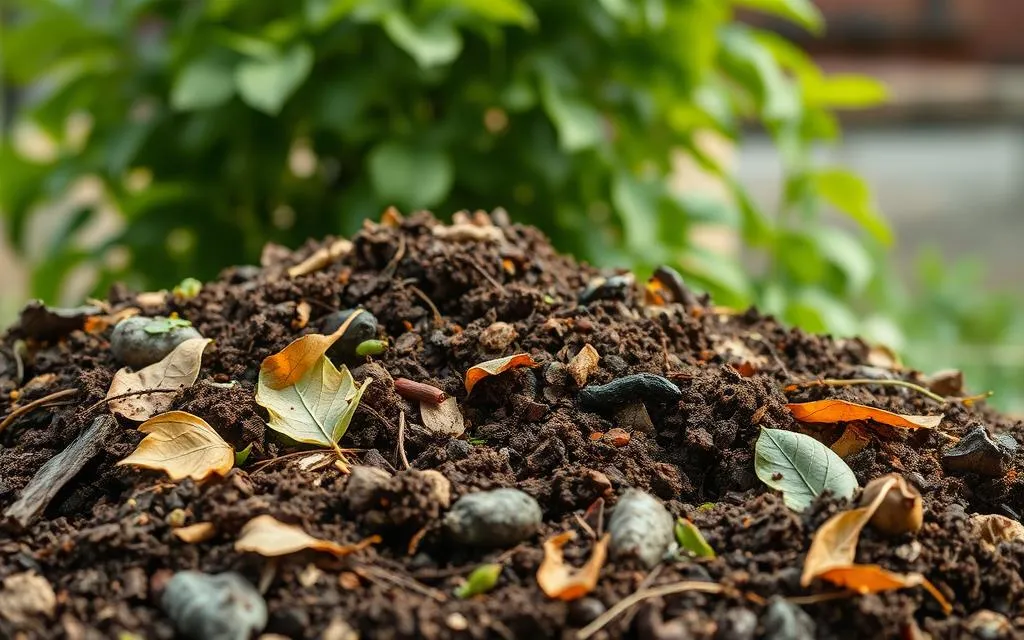What Helps Plants Grow Faster? – Discover the secrets of accelerating plant growth in this informative guide. Learn about the factors that promote plant growth and unleash your green thumb. Plants are more than just decorative elements in our surroundings; they play a vital role in maintaining the ecological balance and sustaining life on Earth. Whether you’re a seasoned gardener or a newbie in the world of horticulture, understanding what helps plants grow faster is key to cultivating healthy and thriving greenery. In this section guide, we’ll delve into the essential factors that contribute to accelerated plant growth, providing you with valuable insights and expert tips. Plants require the right conditions and care to grow at their best. Whether you have a garden, potted plants, or a lush indoor jungle, knowing how to promote faster plant growth can lead to vibrant and flourishing foliage. In this article, we’ll explore the various aspects that influence a plant’s growth and health, from soil quality to proper watering techniques and more. What Helps Plants Grow Faster? Plants, like all living organisms, have specific requirements for optimal growth. Understanding and meeting these needs can significantly enhance their growth rate. Here are some key factors that contribute to faster plant growth: 1. Nutrient-Rich Soil Quality soil is the foundation of healthy plant growth. Ensure your plants are rooted in nutrient-rich soil that provides essential minerals and organic matter. This allows for robust root development and efficient nutrient absorption. 2. Proper Watering Watering your plants correctly is crucial. Overwatering can lead to root rot, while underwatering can cause stress. Find the right balance by checking the moisture level in the soil regularly and adjusting your watering schedule accordingly. 3. Adequate Sunlight Plants need sunlight to photosynthesize and produce energy. Place your plants in locations where they receive the appropriate amount of sunlight for their specific species. Research the sunlight requirements of each plant in your care. 4. Temperature Control Maintaining the right temperature is essential for plant growth. Some plants thrive in cooler conditions, while others prefer warmth. Make sure your plants are kept in an environment that matches their temperature preferences. 5. Pruning and Trimming Regular pruning and trimming can stimulate new growth by redirecting energy to healthier branches and leaves. Be sure to use clean and sharp tools to avoid damaging the plant. 6. Fertilization Fertilizers provide essential nutrients that may be lacking in your soil. Choose a suitable fertilizer based on your plant’s needs and follow recommended application rates. What chemicals help plants grow faster Plants require various nutrients and chemicals to grow, and it’s important to provide them in the right balance. Here are some key chemicals and nutrients that can helps plants grow faster: Water (H2O): Water is essential for all plant growth processes. It helps transport nutrients throughout the plant and is involved in photosynthesis. Nitrogen (N): Nitrogen is a crucial component of chlorophyll, the pigment responsible for photosynthesis. It promotes leafy green growth and overall plant development. Phosphorus (P): Phosphorus is vital for root development, flowering, and fruiting. It helps transfer energy within the plant and is essential for the formation of DNA and RNA. Potassium (K): Potassium regulates many physiological processes in plants, including the opening and closing of stomata, which influences water and nutrient uptake. Calcium (Ca): Calcium is necessary for cell wall structure and stability. It also plays a role in various cellular processes. Magnesium (Mg): Magnesium is a central component of chlorophyll and is involved in photosynthesis. It also activates enzymes necessary for growth. Sulfur (S): Sulfur is essential for the production of amino acids and proteins. It is also involved in the formation of chlorophyll. Iron (Fe): Iron is required for the synthesis of chlorophyll and various enzymes involved in plant metabolism. Zinc (Zn): Zinc is a micronutrient that plays a role in the development of plant hormones and enzyme activity. Copper (Cu): Copper is involved in several enzyme systems and helps with plant respiration. Manganese (Mn): Manganese is essential for photosynthesis, nitrogen metabolism, and the formation of plant cell walls. Boron (B): Boron is necessary for cell division, pollination, and the development of fruit. Molybdenum (Mo): Molybdenum is needed for nitrogen fixation in legumes and various enzymatic reactions. Chelated Micronutrients: Chelated forms of micronutrients are more readily available to plants because they are protected from binding with other ions in the soil, making them easier for plants to absorb. Plant Growth Hormones: Plant hormones like auxins, gibberellins, and cytokinins can be used to influence plant growth and development, including stimulating root growth or encouraging flowering. Organic Matter: Adding compost or organic matter to the soil can improve nutrient retention, moisture retention, and microbial activity, all of which contribute to healthier plant growth. It’s important to note that while these chemicals and nutrients are essential for plant growth, providing too much of any one element can be detrimental to plants. Proper soil testing and understanding your specific plant’s nutrient needs are essential for promoting healthy and faster growth. What liquids help plants grow best Water is the most crucial liquid for plant growth. It is essential for various plant processes, including photosynthesis, nutrient uptake, and the transportation of minerals and sugars throughout the plant. However, there are a few important considerations when it comes to watering your plants effectively: Clean, Fresh Water: Most plants thrive when watered with clean, fresh water that is free from contaminants. Avoid using water that is too salty, chlorinated, or contains harmful chemicals. Proper Moisture Levels: It’s essential to maintain the right moisture level for your specific plants. Some plants prefer consistently moist soil, while others like to dry out slightly between waterings. Overwatering can lead to root rot, while underwatering can stress and damage plants. pH Levels: The pH of the water can affect plant growth. Most plants prefer slightly acidic to neutral pH levels. If your water is too acidic or alkaline, it may be necessary to adjust it using appropriate treatments. Rainwater: Many gardeners find






